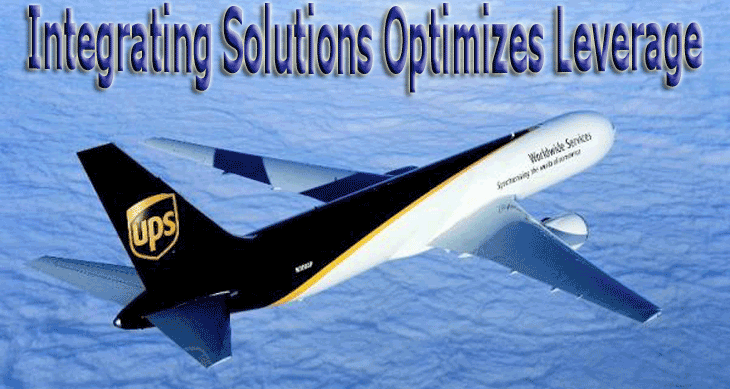

 FlyingTypers
asked a number of leading executives whether improving consumer confidence
in key western markets would boost air freight volumes as the need for
expedited shipments rose; or whether they thought the lengthy dip suffered
by the air cargo industry in both volume and pricing was indicative of
a more fundamental, long-term modal shift. Jeff McCorstin is President
of Global Freight Forwarding District, UPS Asia Pacific. FlyingTypers
asked a number of leading executives whether improving consumer confidence
in key western markets would boost air freight volumes as the need for
expedited shipments rose; or whether they thought the lengthy dip suffered
by the air cargo industry in both volume and pricing was indicative of
a more fundamental, long-term modal shift. Jeff McCorstin is President
of Global Freight Forwarding District, UPS Asia Pacific.
True to his analytical mindset, when asked
to what extent modal shift has been a factor in bearish air freight markets
in recent years, McCorstin was keen to throw some numbers into the fray.
Quoting World Trade Organization figures,
he contended that world trade volume growth had been positive since 2010,
while figures from Drewry and IATA revealed that world container traffic
annual growth rates had been greater than air freight by a factor of 3-7
times.
He concluded: “Ocean volume has been
outgrowing air freight since 2011, indicating that shippers are changing
their mix of modes they use.”
What happens next is more difficult to pin
down, however.
“As the global economy picks up there
may indeed be a certain amount of mode shift back to air to the extent
that cost cutting alone is driving trade down from air to ocean,”
he told FlyingTypers.
“We do not see this shift to be significant
based on the factors we see driving mode shift. What we’re seeing,
however, is that larger mode shift quantities are being driven by product
life cycle changes in both the high tech and healthcare segments.”
In high tech, McCorstin said product innovation
was now declining in some major categories, for example, laptops, so that
obsolescence was now a declining risk, allowing for extended model life
cycles and therefore greater transit time allotments.
“Not only is the obsolescence risk
declining but the retail product values are dropping such that total retail
revenues now no longer support the air freight expense,” he said.
“In healthcare, the same factors are
played out as high-priced brand pharmaceuticals are replaced by low-priced
generic drugs.”
UPS has undertaken several customer engagements
in both the high-tech and healthcare segments with a view to exploring
the benefits of shifting to lower cost transportation models.
“Customers
are coming to us seeking not only air and ocean services but also intermediate
solutions along the speed/cost continuum.”
McCorstin believes that multi-modal solutions
that integrate existing UPS products and capabilities have the potential
to empower customers to make decisions that optimize their inventory leverage.
“Customers want technology capabilities
to see their inventory upstream from the purchase order,” he said.
“And they want experience and a global
network to develop and execute operating plans that allow them to make
solution choices that may vary from shipment to shipment based on inventory
optimization.”
He believes customers, rather than simply
weighing up how much it costs versus how long it takes to send a single
shipment by either air or ocean, will instead continue to seek out far
more sophisticated solutions that allow them to make tailored decisions
based on an array of factors and requirements unique to their business.
“Information/logistics programs such
as UPS Supplier Management deliver that type of customer empowerment with
a cloud based information platform that can be accessed by the customer,
their vendors, and logistics providers in a way that facilitates multi-party
collaboration for maximum efficiency,” he said.
Sky King
For Part I Click Here
For Part II Click Here
|


